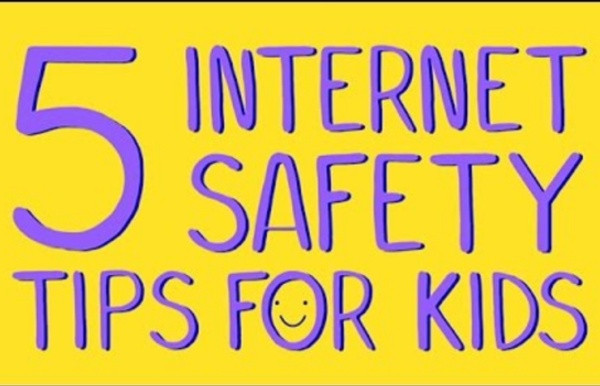



http://www.youtube.com/watch?v=X9Htg8V3eik
Related: Year 7Expert insights into education for positive digital footprint development Children and young people are spending more time online. Face-to-face interactions with friends are being supplemented with digital communication. Australian children are particularly prolific users of the internet (Green et al, 2011). Keeping Your Child Safe on the Internet As with the real world, the Internet has its seamy side -- and it's all too easy for kids to stray into it. Click-click and a Peter Cottontail fan's search for "bunnies" turns up raunchy pictures of women wearing fuzzy white ears and not much else. Porn, questionable characters, hate groups, and misinformation flourish online. To preserve the best of what's online for your kids and avoid the garbage:
Ultimate Parent's Guide to Internet Safety Infographic Nowadays Education, Parenting and Technology are integral parts and the latter should be used wisely. The Ultimate Parent's Guide to Internet Safety Infographic looks at the facts and figures regarding children and the Internet, while offering tips and tools to encourage a safe and productive online environment. The child doesn't understand and the parent might not know.
Family Contract for Online Safety – Kids pledge Note: This pledge is mainly for younger children. Teens and pre-teens should use the teens’ pledge. Also note that this “pledge” is really designed as a conversation starter and certainly could be adopted to suit your family. I agree to the above Everything You Wanted to Know About Puberty More Than a Funny Word OK, so it's a funny word . . . but what is puberty, anyway? Puberty is the name for when your body begins to develop and change. During puberty, your body will grow faster than any other time in your life, except for when you were an infant.
Basic Internet Safety Learning to recognize the warning signs of these risks will allow trusted adults to intervene and lessen potential negative impacts. By acting as a resource, parents and guardians can help make the Internet a safer place for their families. As a parent or guardian, you should stay well-informed about current issues to understand what your children are experiencing on and off the Internet. If they are social networking, instant messaging, using webcams, or blogging, help them use these tools safely by learning how to use them yourself. Children whose parents and guardians regularly talk to them about personal safety are more likely to exhibit responsible behavior on their own.[1] NetSmartz invites you to learn about the issues surrounding your children’s online lives.
7 things you need to know to keep kids safe online By Dr. Michele Borba In the past ten years, the amount of time our kids spend online daily has tripled; online screen time has become a regular part of even our younger kids' lives. (Four in ten 2- to 4-year olds and half of 5- to 8-year-olds now use smartphones, video iPods or iPads). Though there are clear benefits, the Internet also poses unique parenting challenges. 9 Ways to Create a Cyber-Safe Classroom This is the first article in a series about digital age classroom. For more ideas, check out 41 Tips, Tricks and Techniques for Your 1:1 Classroom. “Safety and security don’t just happen; they are the result of collective consensus and public investment. Why YouTube, currently under FTC probe, "could be a lot safer" for kids YouTube is currently facing a federal investigation led by the Federal Trade Commission. The platform has been accused of illegally collecting data on children. Consumer groups allege that YouTube exposed children to inappropriate content, and failed to police videos featuring minors. In February, Wired reported on pedophiles using YouTube comment sections to guide other predators to videos of children. The site has since disabled the comments feature under those videos.
Cyber Safety - Internet Safety Tips To Stay Safe Online : InformED It's always good to be cautious while on the internet. There are people in the cyber world who want to do harm to you or your computer. These are some good tips to keep in mind while you are surfing: Internet safety 101: 15 tips to keep your kids and family safe Kids today are able to access more information than any generation before. Tablets, laptops, and smart devices are common at school and at home. The internet brings a wealth of information that can enrich our lives. But it also can harm us and the people we love. You want your children to have access to information, but you also want them to be safe. How can you get both things?
Cyberbullying: What Teachers and Schools Can Do They may not call it cyberbullying. Students may say they got "dissed" on Facebook or that someone flooded their phone with mean texts. Even little kids have been known to hack into Club Penguin to sabotage each other's games. While most of these incidents occur at home, the problems spill over to the classroom, making cyberbullying an issue teachers can't ignore. The answer isn't forbidding technology, say experts, so much as teaching kids right from wrong.
Cyberbullying: Parents Beware Social media provides a perfect platform for cyberbullies: it’s anonymous, wide-reaching, highly public, and accessible 24/7 • Preventing children from becoming victims of this form of bullying requires a comprehensive effort from schools, communities, parents, and technology companies Bullying has gotten a great deal of attention in the past several years thanks to a number of highly publicized cases in which children have been so brutally victimized by peers that they felt their only escape was suicide. In the wake of these tragedies, whole communities, school systems, and local and state governments have taken steps to address bullying. But while such efforts are helping, as long as children have unfettered access to the Internet, cyberbullying—a high-tech form of child-to-child intimidation—is likely to continue. It therefore is important for parents and children to learn how to recognize it and defend against it. What is Cyberbullying?